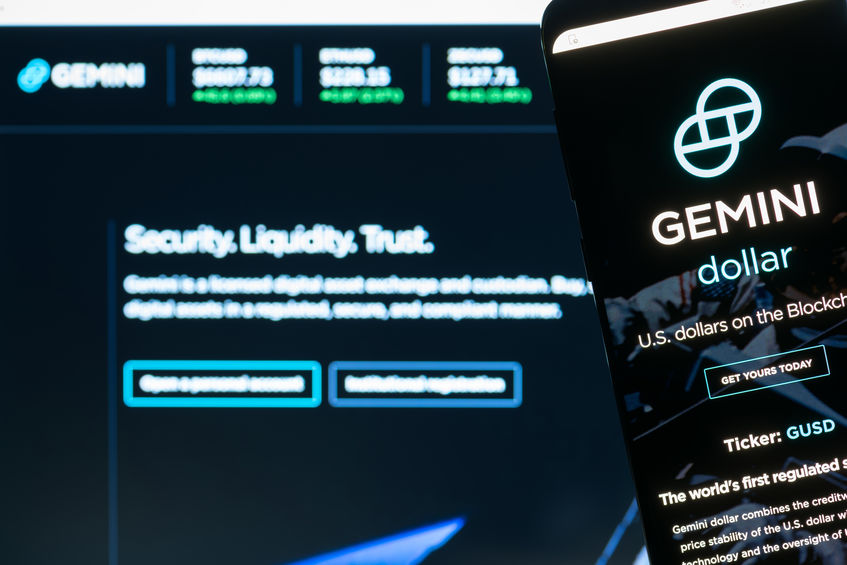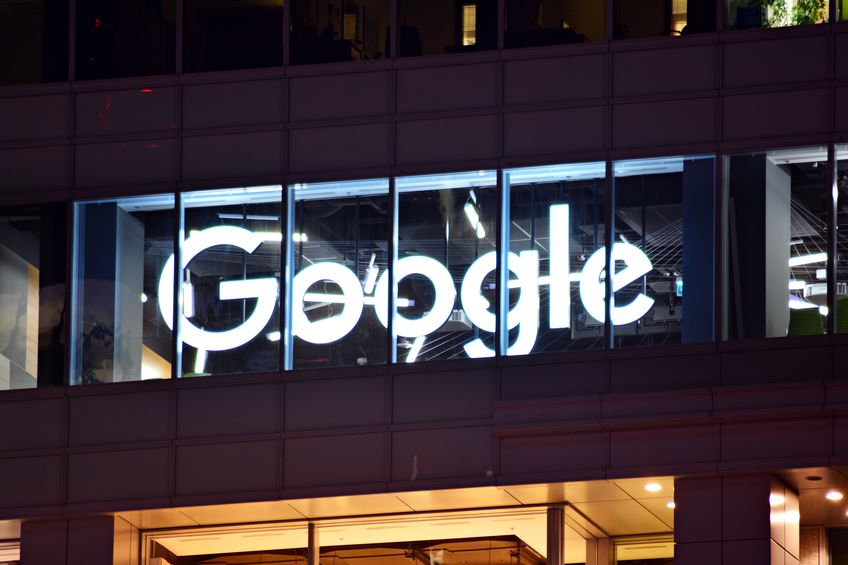Archive for 2020
Every Business That Got $150,000 or More in PPP Funds (The List)
July 7, 2020In the interest of transparency, the SBA dumped a list of more than 660,000 businesses that got $150,000 or more in PPP funding.
You can download the entire thing right here.

Keeping Up With The Winklevii
July 6, 2020 Spending the previous three and a half months indoors, locked away from others, and sat at homebound desks have had differing effects on everyone. Some have had a period of intense productivity, some have fallen into bad habits, and some have spent an inordinate amount of time on social media. The Winklevoss twins, famous for playing a role in the founding of Facebook, are of the latter sort.
Spending the previous three and a half months indoors, locked away from others, and sat at homebound desks have had differing effects on everyone. Some have had a period of intense productivity, some have fallen into bad habits, and some have spent an inordinate amount of time on social media. The Winklevoss twins, famous for playing a role in the founding of Facebook, are of the latter sort.
Cameron and Tyler, aged 38, are two entrepreneurs with a particular focus on cryptocurrencies. Having experimented with social media in its early days with Mark Zuckerberg at Harvard, the pair later sued the Facebook CEO in 2008, the same year they rowed for the USA in the Beijing Olympics. From here the twins went into venture capital; led a seed-funding round for BitInstant, a Bitcoin payment processor; claimed to have accumulated 1% of all Bitcoin by 2013 between them; and launched Gemini, their own cryptocurrency exchange, in 2014. Since then, as Bitcoin’s value has surged and fluctuated, the pair have become figureheads for the cryptocurrency, having been proponents of the decentralized currency from the days when it was worth less than $10, to its highest valuation in 2017 at just below $20,000, to its current price of just over $9,000.
And with quarantine providing all the time in the world to ponder the future of Bitcoin, the twins have been posting daily on Twitter about the crypto, relating it to any and all topics that proved popular. Cancel culture? There’s a tweet for that. George Orwell’s magnum opus, 1984? There’s a tweet for that. Vaccinations and their alleged comparability with cryptocurrency? There’s a tweet for that.
 Beyond comparing and relating Bitcoin to everything that comes up in the news cycle, the twins brought up an idea a number of times on social media over quarantine: that the pandemic has set the stage for a decentralized world.
Beyond comparing and relating Bitcoin to everything that comes up in the news cycle, the twins brought up an idea a number of times on social media over quarantine: that the pandemic has set the stage for a decentralized world.
While it is clear that this has happened to a point already, given the global move toward working from home, Cameron believes it will go further, mentioning in a tweet that the pandemic will be “an inflection point for Bitcoin and the Metaverse.” Choosing not to expand on this lofty statement, the specifics of Cameron’s claim can’t be known for sure, but the idea behind the Metaverse, a collectivized virtual space based off the setting of a 1992 sci-fi novel which is capable of replacing the functions and opportunities granted by the real world, is one well suited to Bitcoin, or, at least the idealized vision of what Bitcoin could become.
 As well as this prophesizing of a virtual utopia, the brothers displayed an intense distrust and paranoia of government, currencies that are regulated by centralized banks, and the role of big tech. With tweets criticizing the Federal Reserve’s decision to inject $1.5 trillion into the economy, YouTube’s ongoing debate over whether the First Amendment applies to a private business, and warnings against the threat of a government willing to grab more power during a pandemic, the billionaires’ tweets appeared at times to reach Elon Musk’s recent anti-government messages via Twitter.
As well as this prophesizing of a virtual utopia, the brothers displayed an intense distrust and paranoia of government, currencies that are regulated by centralized banks, and the role of big tech. With tweets criticizing the Federal Reserve’s decision to inject $1.5 trillion into the economy, YouTube’s ongoing debate over whether the First Amendment applies to a private business, and warnings against the threat of a government willing to grab more power during a pandemic, the billionaires’ tweets appeared at times to reach Elon Musk’s recent anti-government messages via Twitter.
With the twins having noted their disappointment in the US government earlier in the year at a conference in January, that time regarding the government’s slow adoption of cryptocurrencies, it is not so much of a surprise to see these further critiques, especially with them largely taking aim at the government’s employment of federally printed money, or “toilet paper,” as they call it.
All this being said, the twins appeared to be just like everyone else during quarantine: left with not much to do with a stable internet connection and a charged phone. And so conspiracies and cryptocurrencies aside, the brothers also made time for the irreverent and the relatable, posting about the possibility of a Groundhog Day-style scenario during quarantine as well as the importance of “sunsets, the stars, and true friends” in a tweet that wouldn’t be amiss in a Disney film.
Ultimately though, the sooth-saying and future-gazing done by the Winklevii in quarantine will take years, if not decades, to come about, if it ever does. One thing is certain though, the twins won’t stop talking about it until then.
The State of Securitizations in Alternative Lending
July 6, 2020Over the last few months, “securitizations” were frequently cited as a reference point for the health of a small business lender or alternative finance provider. Given the vague information and inferences that circulated, I decided to schedule a chat with Methodical Management co-founder Gunes Kulaligil to get his perspective. Our discussion on the state of securitizations in alternative lending below:
Google Pay Launches SMB Loans in India, Plans to Expand American Features
June 30, 2020 This week Google announced that it is expanding its service offerings in India, with small and medium-sized businesses in the country now being able to apply for loans via the Google Pay for Business app. The result of partnerships with banks, Google also announced that it will be rolling all of its SMB-related services into one platform; these include Google My Business, an app that allows owners to make a business profile and get a Google Maps listing; and Google Pay Spot, which lets entrepreneurs customize their digital storefront, as seen by customers in the Google Pay app.
This week Google announced that it is expanding its service offerings in India, with small and medium-sized businesses in the country now being able to apply for loans via the Google Pay for Business app. The result of partnerships with banks, Google also announced that it will be rolling all of its SMB-related services into one platform; these include Google My Business, an app that allows owners to make a business profile and get a Google Maps listing; and Google Pay Spot, which lets entrepreneurs customize their digital storefront, as seen by customers in the Google Pay app.
This is just the latest of features released in India by the tech giant, with it launching the ability to transfer money between Google Pay users earlier this year. What makes this interesting though is that in a recent interview with Business Insider, a Google spokesperson noted that the company’s decisions in global markets have become increasingly more influenced by its trialing of new features in India.
“We’re always trying to understand and learn from changing consumer behaviors worldwide so we can build more helpful features,” the spokesperson explained. “Our learnings from Google Pay in India will enable us to make digital money experiences simple, helpful, and accessible and create new economic opportunities for both users and our partners around the world.”
So does this mean Google will soon be joining the likes of Square and Clover and begin offering funding to American small businesses? The future is not so clear, but with the company announcing two weeks ago that it plans to incorporate digital storefronts into Google Pay, serving as an in-app portal to purchase goods, it appears that long-time features of the Indian version are beginning to bleed into the American counterpart.
Having announced its intentions to offer checking accounts in 2020, and with leaks earlier this year pointing towards a Google Pay debit card, it appears as if Google is following in the steps of its rival, Apple, and wading further into the financial services sector.
Canadian Small Business Lender Looks Doomed In Wake of COVID-19
June 29, 2020 As well-known (1, 2) small business lenders in the United States continue to negotiate COVID-19 era workouts with their creditors, another in Canada appears to be falling off the cliff.
As well-known (1, 2) small business lenders in the United States continue to negotiate COVID-19 era workouts with their creditors, another in Canada appears to be falling off the cliff.
On Thursday, Lendified’s President & Director Kevin Clark tendered his resignation effective July 3rd. He follows other board members Edward Kelterborn and Benjy Katchen whose resignations went into effect on June 25th. Company CFO Norman Tan previously resigned on June 9th and no replacement has been named.
COVID-19’s arrival came at a difficult time for Lendified. Before COVID, the company had never turned a profit or reported positive cashflow in its entire history.
“Lendified is in default in respect of credit facilities with its secured lenders. Forbearance and standstill agreements are being discussed with these senior lenders, with none indicating to date that any enforcement action is expected although each is in a position to do so,” the company said. “However, no formal agreements in this regard have been concluded as of the date hereof.”
The company expressed that it would not be able to continue operations if it was not able to finalize a forbearance on its defaults AND simultaneously obtain an immediate infusion of capital to fund its operations.
Lendified’s board of directors is presently considering selling its assets or its entire business in order to raise revenue.
A wholly owned subsidiary of Lendified, Judi.ai, an automated loan underwriting platform, is poised to cease operations as a result of a cashflow shortfall. “[Judi.ai] requires cash infusions in the amount of approximately $100,000 per month in order to maintain operations,” Lendified reported. “Its cash reserves at this time are approximately $80,000. At this time, the Company is not in a position to continue to fund the Business and there can be no assurances that it will be able to do so in the future.”
The company went public on the Toronto Stock Exchange on May 26th via a reverse merger and has since experienced a 95% drop in its share price. The company’s market cap on Monday hovered around $700,000 USD.
How Should A Merchant Cash Advance Be Structured, What is Syndication, and More?
June 29, 2020A recent roundtable hosted by Pepper Hamilton partner Gregory J. Nowak examined some broad questions about merchant cash advances including:
- What is a merchant cash advance?
- How should a merchant cash advance transaction be structured?
- What are the key features for enforceability?
- Could a merchant cash advance transaction be a security?
- What is participation? is it a security? If yes, what does that mean?
- What is syndication?
- What’s the role of FINRA?
They published the presentation on jdsupra.com and it can be viewed here:
Business Loan Broker “The Tyrant” Pleads Guilty
June 29, 2020 The owner of a Long Island business loan brokerage accused of orchestrating an advance fee loan scheme, pled guilty this month. Demetrios Boudourakis, known in his brief MMA fighting career as The Tyrant, pled guilty to the top charge of grand larceny in the 2nd degree.
The owner of a Long Island business loan brokerage accused of orchestrating an advance fee loan scheme, pled guilty this month. Demetrios Boudourakis, known in his brief MMA fighting career as The Tyrant, pled guilty to the top charge of grand larceny in the 2nd degree.
Boudourakis was arrested last year after joint law enforcement efforts by the Suffolk and Nassau police and sheriff’s departments, New York State Police, the FBI and the Drug Enforcement Administration, had been monitoring his company’s business for months. According to the Suffolk County District Attorney, the investigation revealed evidence that Boudourakis offered loans to his targets in exchange for advance fees, and then collected the fees without providing the loans. Once he and his employees had received the advance fees, they would cease contact with the victims. The scheme was determined to have generated stolen proceeds in excess of $2 million.
His sentencing date is on September 4th, where he is expected to serve between 5 and 10 years in prison.
Separately, pending federal drug charges against him were recently dropped.
OnDeck Update 6/23
June 24, 2020On June 23rd, OnDeck filed the following statement with the SEC:
On June 23, 2020, we obtained a limited consent (“Consent”) for our corporate debt facility (“Corporate Facility”). Under the Consent, the lenders consented to delay the effectiveness of the increased monthly principal repayments until July 14, 2020 (or such later date as may be agreed by the Administrative Agent), which were triggered by an Asset Performance Payout Event (Level 2) (“APPE”) that occurred on June 17, 2020. In consideration for the Consent, the Company agreed to make a $5 million principal repayment (“Repayment”) substantially concurrent with the execution of the Consent. Under the Consent, the lenders also agreed that, at the Company’s option, the Repayment will either (i) reduce the amount of the monthly principal repayment due on July 17, 2020 by the amount of the Repayment or (ii) if the parties enter into an amendment on or prior to July 17, 2020, be credited towards any principal repayment required under that amendment. The Company entered into the Consent in contemplation of entering into a broader amendment to the Corporate Facility to address impacts stemming from the COVID-19 pandemic. If such an amendment is not entered into, the APPE triggers $21 million monthly principal repayments which, if not cured, would commence on July 17, 2020 and continue until the Corporate Facility is repaid in full. The Company made a payment of approximately $13 million on June 17, 2020 as a result of the previously disclosed Asset Performance Payout Event (Level 1), bringing the total balance outstanding as of that date to approximately $92 million. The Revolving Commitment Termination Date occurred as a result of such Level 1 event. Certain capitalized terms not defined in this section of the report are used with the meanings ascribed to them in the Corporate Facility as amended by prior amendments thereto and the Consent.
Shares of OnDeck closed at 86 cents yesterday. The company was previously warned that long-term pricing below $1/share would result in delisting from the New York Stock Exchange.





























